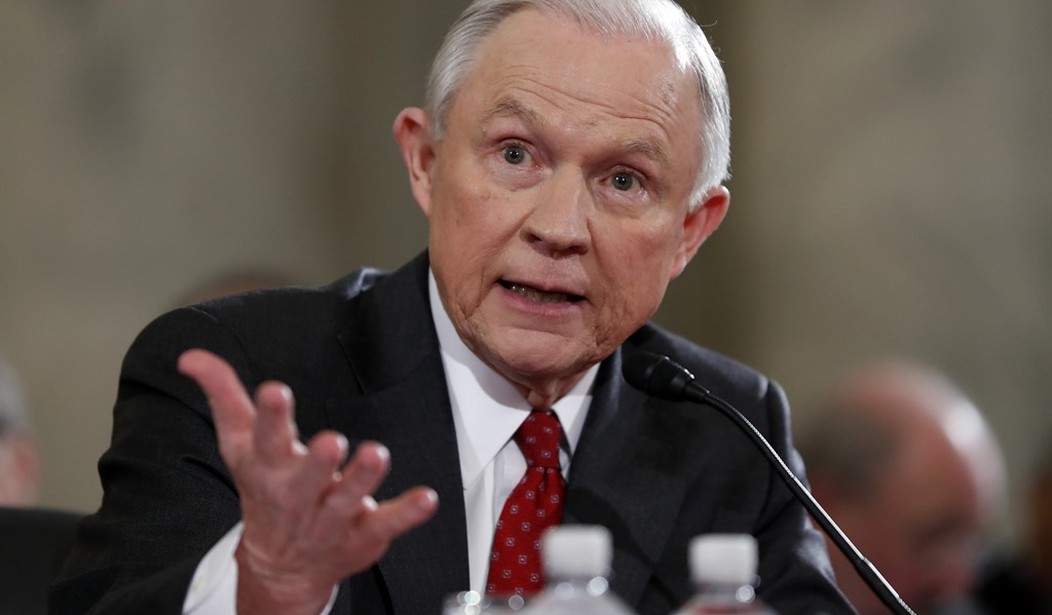Allen went there, he wrote, to ask Reagan to support his campaign for governor of New Jersey. He and the future president ended up talking about foreign policy.
"I'd like to tell you of my theory of the Cold War," Reagan told Allen. "Some people think that I am simplistic, but there is a fundamental difference between being simplistic and having simple answers to complex questions."
"So," Reagan said, "my theory of the Cold War is that we win and they lose."
Twelve years later, the Berlin Wall came down.
Reagan led the West to victory in the Cold War because he understood -- as he explained in a 1983 speech to the National Association of Evangelicals -- that at its core the Cold War was a moral struggle against an "evil empire."
In that same speech, Reagan said that "freedom prospers only where the blessings of God are avidly sought and humbly accepted.
"The American experiment in democracy rests on this insight," he said. "Its discovery was the great triumph of our Founding Fathers, voiced by William Penn when he said, 'If we will not be governed by God, we must be governed by tyrants.'"
Reagan said he embraced "a political philosophy that sees the greatness of America in you, her people, and in your families, churches, neighborhoods, communities -- the institutions that foster and nourish values like concern for others and respect for the rule of law under God.
Recommended
"Now, I don't have to tell you," Reagan said, "that this puts us in opposition to, or at least out of step with, a prevailing attitude of many who have turned to a modern-day secularism, discarding the tried and time-tested values upon which our very civilization is based."
Reagan saw the Supreme Court's Roe v. Wade decision -- declaring abortion a right -- as a giant step toward further attacks on the sanctity of life.
"More than a decade ago, a Supreme Court decision literally wiped off the books of 50 states statutes protecting the rights of unborn children," Reagan said. "Abortion on demand now takes the lives of up to one and a half million unborn children a year. Human life legislation ending this tragedy will some day pass the Congress, and you and I must never rest until it does.
"You may remember," he continued, "that when abortion on demand began, many, and, indeed, I'm sure many of you, warned that the practice would lead to a decline in respect for human life, that the philosophical premises used to justify abortion on demand would ultimately be used to justify other attacks on the sacredness of human life -- infanticide or mercy killing.
"Tragically enough," he said, "those warnings proved all too true."
Thirty-four years after Reagan spoke these words, the Senate Judiciary Committee convened hearings on the confirmation of Sen. Jeff Sessions as attorney general.
They began with Chairman Charles Grassley citing a letter from former Secretary of State Condoleezza Rice endorsing Sessions -- and with Sessions happily introducing his wife of 47 years and mentioning his 10 grandchildren.
Sen. Dianne Feinstein, the committee's ranking Democrat, quickly revealed the true driving force behind the liberal assault on Sessions.
"As you know, the Constitution also protects a woman's right to have access to health care and determine whether to terminate her pregnancy," Feinstein told Sessions.
She meant: We've managed to get a majority of nine justices to declare a "right" to kill unborn babies.
"You have referred to Roe v. Wade as, quote, 'one of the worst colossally erroneous Supreme Court decisions of all time,' end quote," Feinstein said. "Is that still your view?"
"It is," Sessions said. "I believe it violated the Constitution, and really attempted to set policy and not follow law."
Sessions then conceded he would not attempt to unilaterally overrule the Supreme Court from his position as attorney general.
"It is the law of the land," he said of Roe.
Feinstein moved next to same-sex marriage -- noting that President-elect Donald Trump had said this issue "was settled in the Supreme Court."
"Do you agree that the issue of same-sex marriage is settled law?' Feinstein asked.
"The Supreme Court has ruled on that," Sessions said. "The dissents dissented vigorously, but it was five to four. And five justices on the Supreme Court, a majority of the court, has established the definition of marriage for the entire United States of America."
Sessions again conceded he would not over-rule the court as attorney general. "I will follow that decision," he said.
Sessions' views on abortion and same-sex marriage are right. Feinstein's are wrong.
But as the struggle between right and wrong has intensified in America, the ultimate battlefield has not been in Congress or the Justice Department. It has been in the Supreme Court.
The confirmation fight over Session has been intense, but it is merely a prelude to the domestic Cold War confrontation we will see over Supreme Court nominations.
If Trump names pro-life constitutionalists -- as he has promised -- the battle cry then must be taken from Ronald Reagan: We win, they lose.

























Join the conversation as a VIP Member